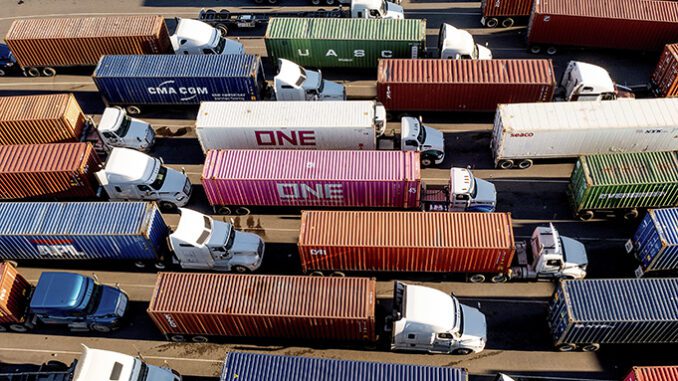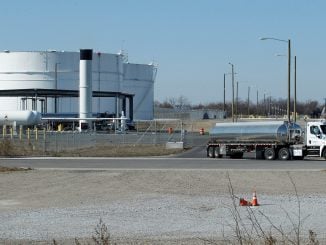
RALEIGH — Prices in October 2021 were 6.2% higher than they were a year earlier, and this inflation is hitting gas, food and other goods in North Carolina, as it is across the country. Andy Ellen, president and general counsel of the North Carolina Retail Merchants Association, and Crystal Collins, president of the North Carolina Trucking Association, both told NSJ on Nov. 15, that they believe the labor shortage is at the root of it all.
“There are supply chain issues out there, obviously; in fact, it runs kind of the gamut from the ports all the way through trucking and the shortage of truck drivers, into the distribution centers and warehouses and getting those products to the stores,” Ellen said. “You have to have all of those components of the supply chain running smoothly in order to make sure we get goods where they’re supposed to go, and we have breakdowns in various parts of those right now.”
Collins agreed, saying, “We are experiencing the same things that you’re seeing nationwide; fortunately, our ports are not in the shape that California ports are in. That’s the one advantage that we have in North Carolina versus Georgia and California.”
Ellen said the retail industry is doing a lot better in getting goods on the shelves as compared to the height of COVID, even if the prices of those goods are now spiking.
“If you think about where we were in March of 2020 — when you couldn’t get toilet paper and you couldn’t get a lot of the types of meat or other things — on that side of it, we’re light years ahead of where we were,” Ellen said. “So I think that you see that costs are increasing on things like gasoline and just normal components for things. And it’s going up through the supply chain and you’re seeing that reflected in food prices and prices of other goods. That’s certainly something that we’re seeing, whether that’s items at a grocery store, another store or items at a restaurant. We’re definitely seeing inflation like we haven’t seen in quite some time.”
He said a lot of businesses are losing out simply because “they can’t find enough employees to run a store.” Many of his member stores are having to reduce hours or even close the store for entire days due to a lack of employees.
“What they’re seeing profit-wise is often a reduction because they can’t be open the entire time,” Ellen said. “The labor side of it is probably the most important factor right now.”
Collins also pinpoints the labor shortage as the key problem affecting the supply chain and driving up prices.
“It’s just overall, all my members, everyone you talk to in trucking is having a problem hiring,” she said. “Right now, it’s the workforce shortage: period. We’ve got a shortage of people working in warehouses and docks to unload and load and store and transport from one trailer to another. It’s not just a truck-driver shortage. It’s the workforce.”
A bright side, though, Collins said, is that the state’s two sea ports — in Morehead City and Wilmington — at least have more workers than ports in other states.
“You want to talk about California, that’s the whole issue [lack of workers]. Our ports in North Carolina are in a better position, because they do have dock workers. They do have crane operators. They do have people working in distribution.”
Her message to the public is, “We’re hiring,” highlighting that many of the North Carolina truck-driving companies that she represents are currently searching for more drivers, and that “The pay is good. Drivers are paid very well.”
Ellen’s members in the retail industry are also aggressively seeking workers.
“For us in the retail sector, oftentimes it’s the person’s first job or first part-time job. And I think going back all the way through COVID, as an industry we lost an entire class of kids over the last 15 months,” Ellen said.
He said these might be the kids that worked a part-time job bagging groceries, and then went on to work other retail jobs, like seasonal jobs during Christmas, “And now we don’t have that anymore.”
Asked why he believes so many people are either leaving jobs or not taking new ones, Ellen said it could be partly because the stock market is doing so well. But he is not sure exactly what government can do at this point to bring people back, other than longer-term workforce development efforts.
“The federal unemployment benefits have gone away generally, and I’m not sure yet what other policies we can have that can convince people to go back to the workforce.”
And for Collins, she said, “I’m just appreciative that the general public has realized how essential trucking is to this country,” citing a stat that 87% of communities in North Carolina depend solely on a truck to deliver their goods — goods that this Christmas may be quite a bit more expensive.


